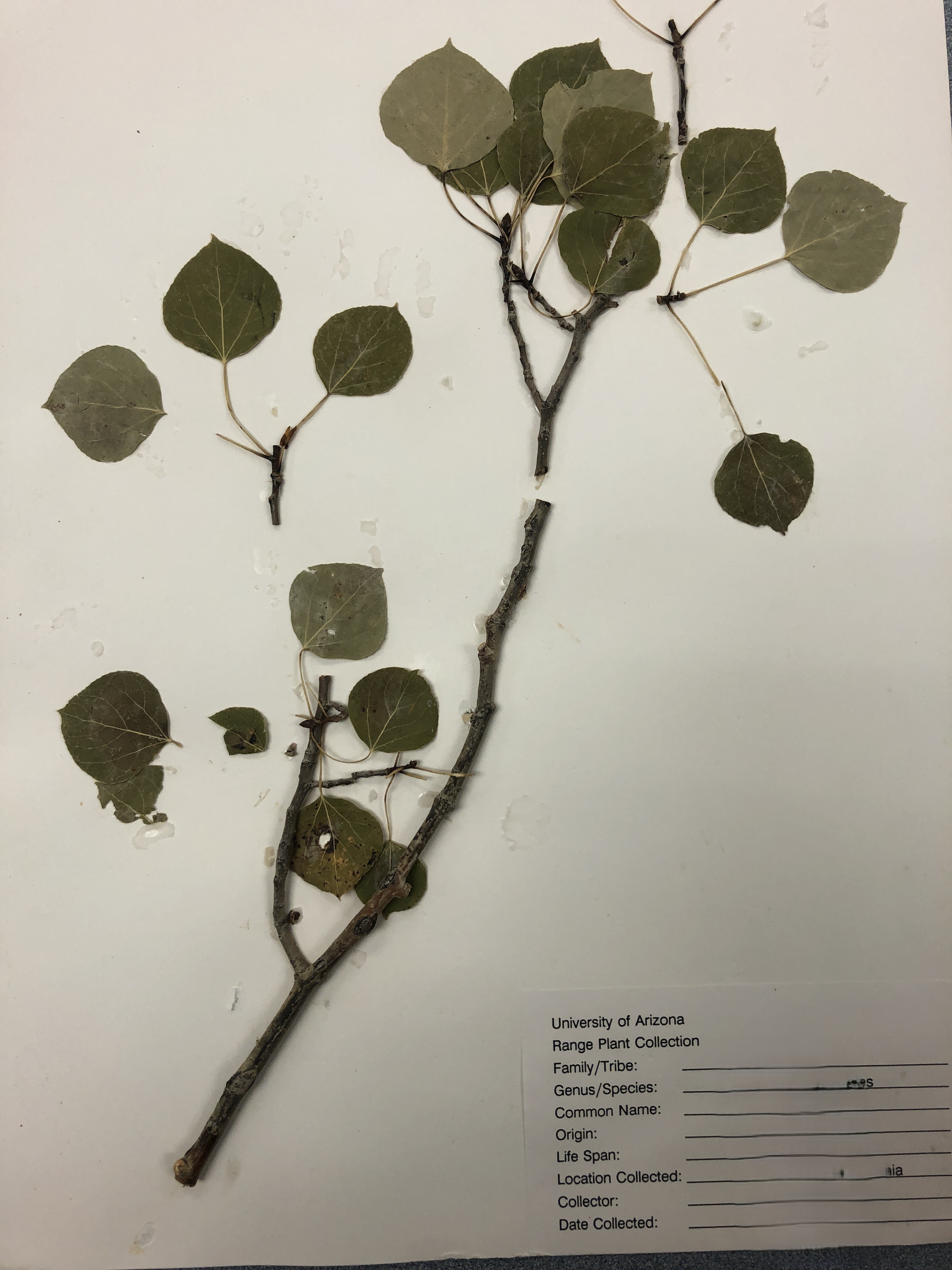RAM 382 lab 9
1/18
Earn XP
Description and Tags
mountain meadows and grasslands
Name | Mastery | Learn | Test | Matching | Spaced | Call with Kai |
|---|
No analytics yet
Send a link to your students to track their progress
19 Terms
Hymenoxys hoopesii
orange sneezeweed
Asteraceae
native, perennial
-long stems with lots of orange, large flowers per plant
-3 toothed ray flowers
-leaves have long, parallel veins
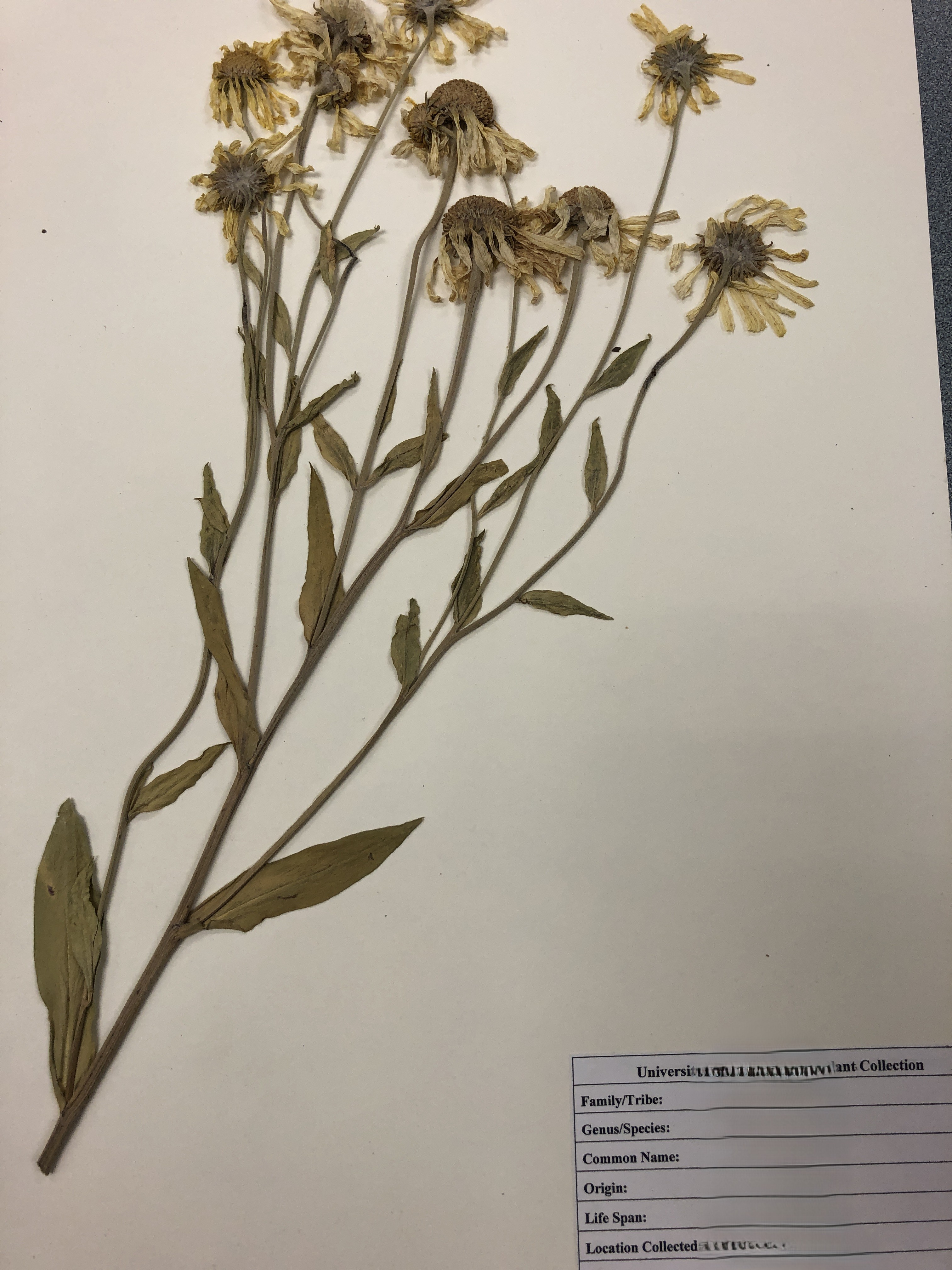
Wyethia amplexicaulis
mule ears
Asteraceae
native, perennial
-woody taproot
-leaves and stems branch out at soil surface and leaves are thick
-flowers are usually one per stem and yellow in color, flowers are rounded (no teethed margins)
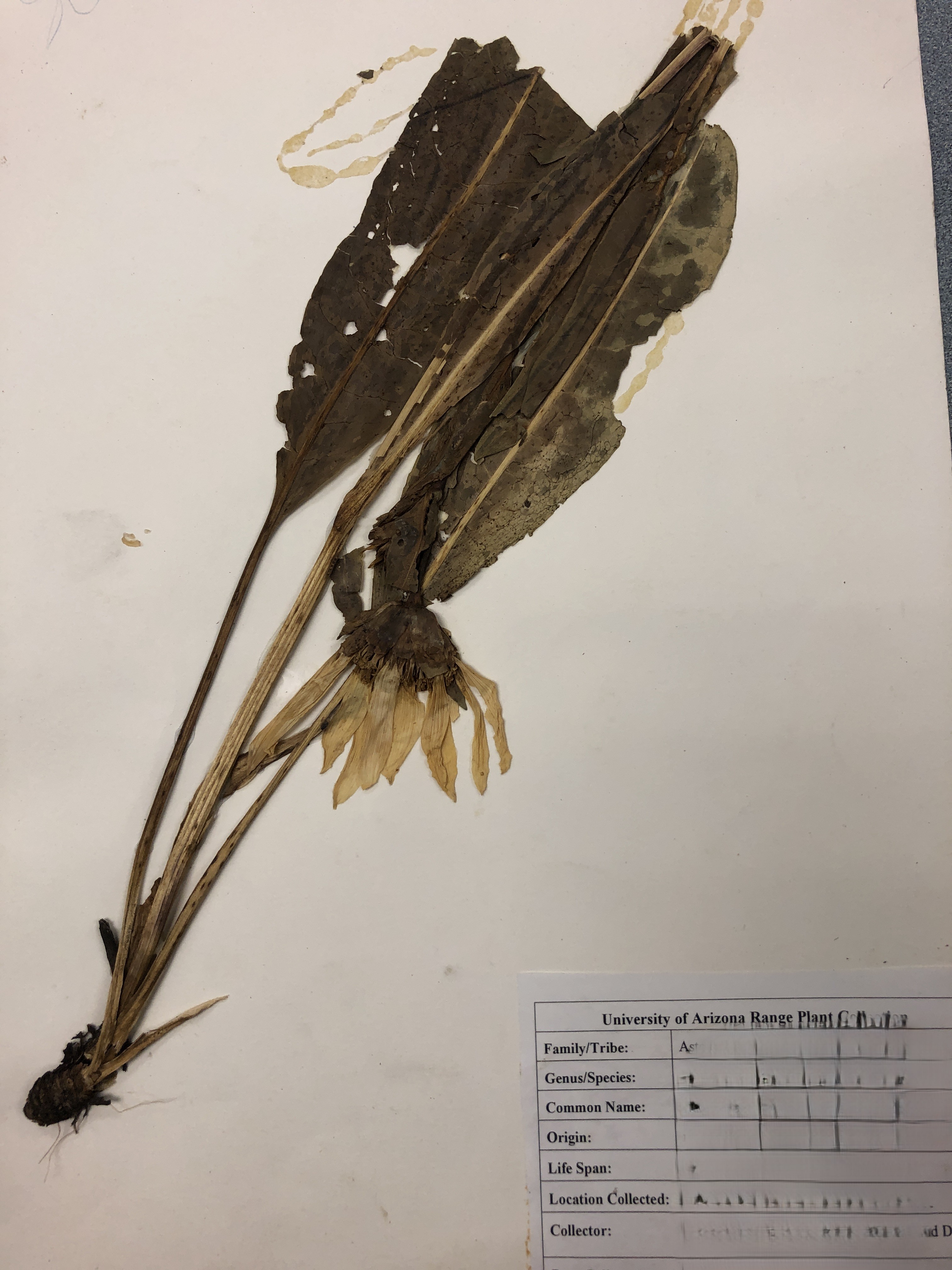
Lupinus spp.
lupine
Fabaceae
native, perennial
-small erect forb
-each flower is on its own stem but all clustered onto one culm
-deep purple/blue colored flowers
-leaves all emerge from a single point and all branch out in a star pattern
-poisonous (concentrate alkalines)
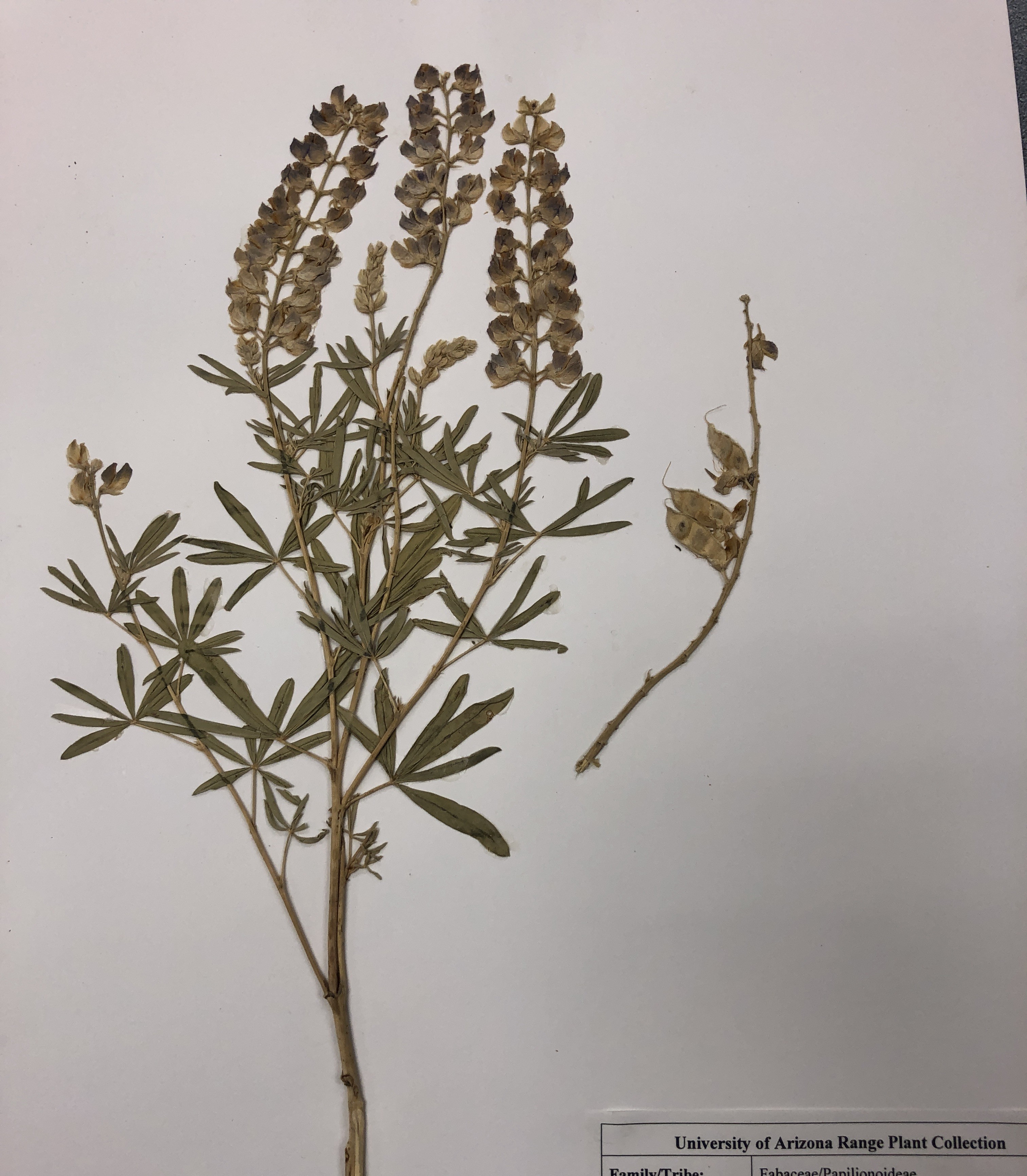
Juncus spp.
rush
Juncaceae
native, perennial
-stems are solid and can be wavy
-flowers emerge mid-stem typically
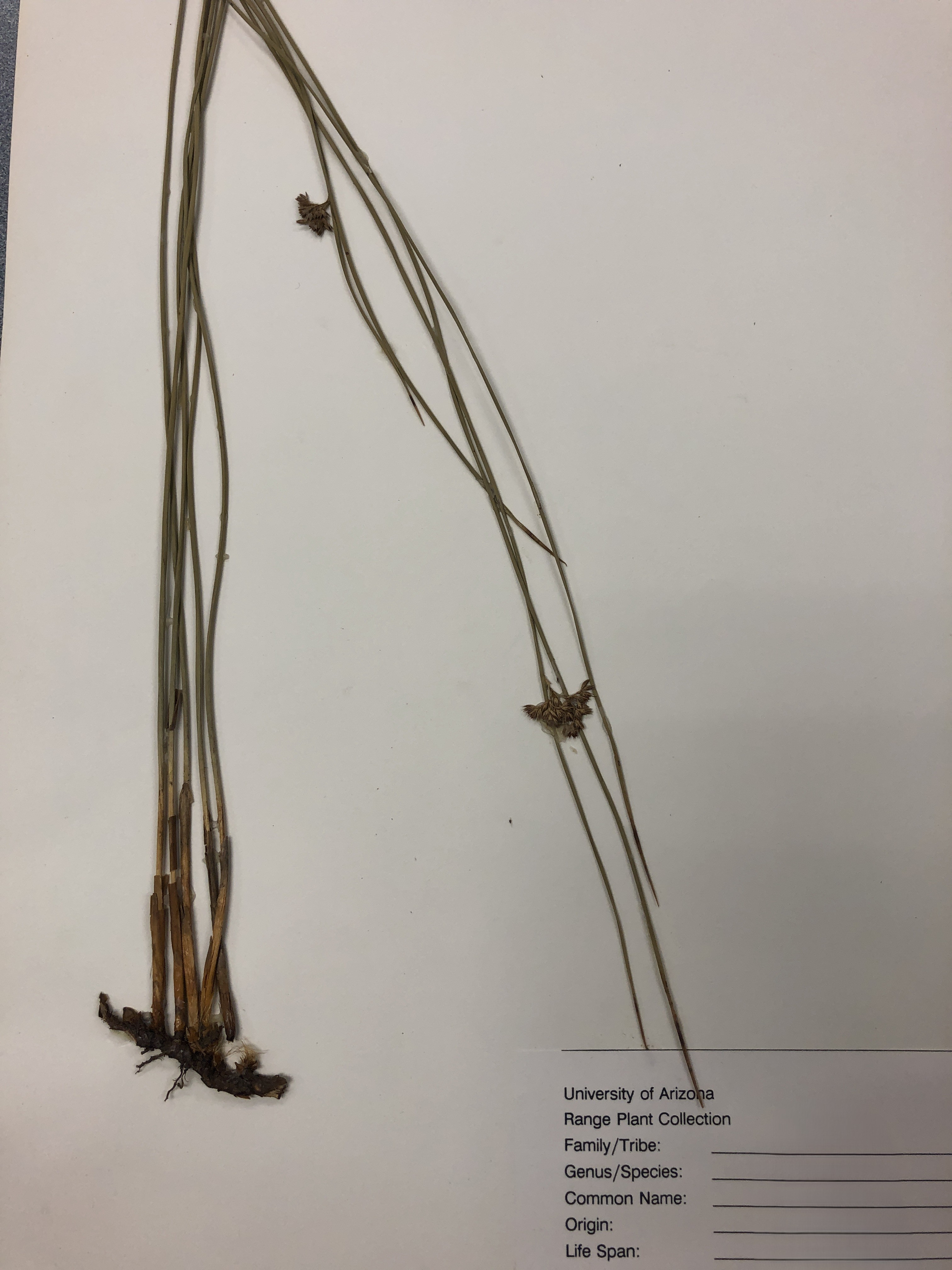
Veratrum californicum
corn lily
Liliaceae
native, perennial
-indicator species-
-flowers stick up much further than the rest of the foliage
-flowers are white with 6 petals
-leaves are thin and large
-very poisonous
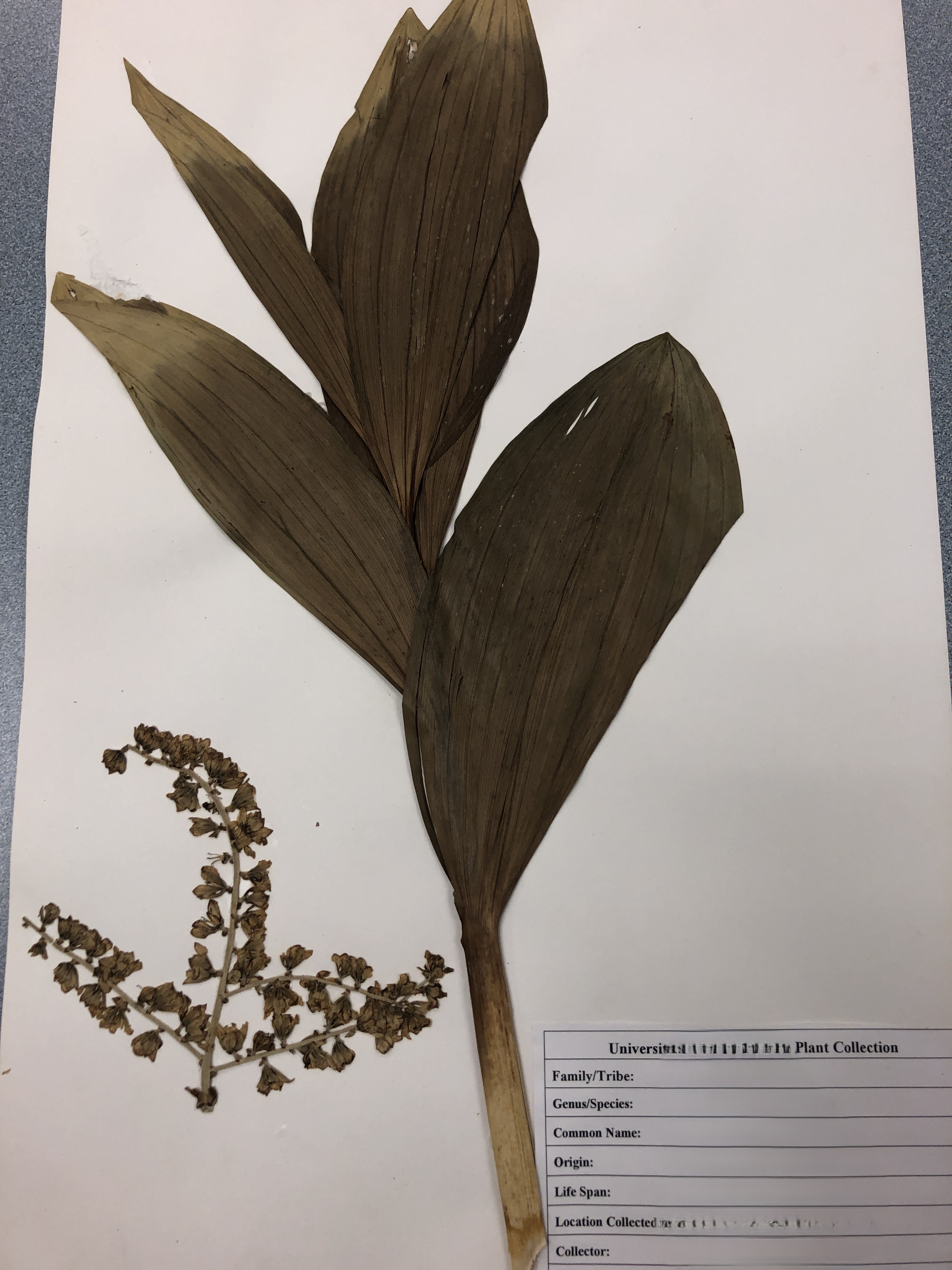
Chamarion angustifolium
fireweed
Onagraceae
native, perennial
-very early post fire colonizer
-flowers are pink/red/purple and located on top of plant
-leaves are long and pointed with a border
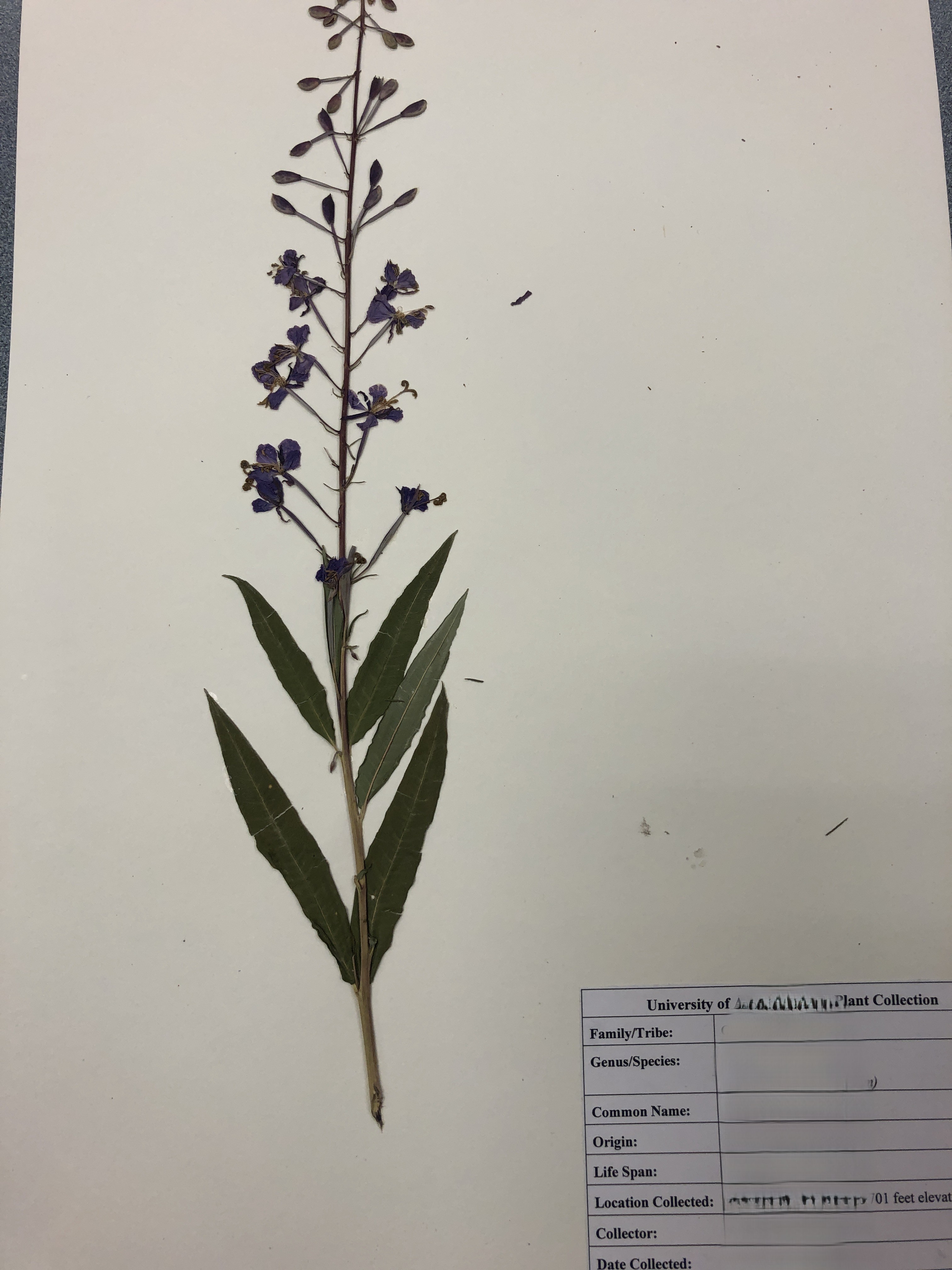
Abies concolor
white fir
Pinaceae
native, perennial
-mid-sized tree
-single needle per fascicle with a lightly rounded tip
-needles often twist at the base
-cones are erect (up out of branches)
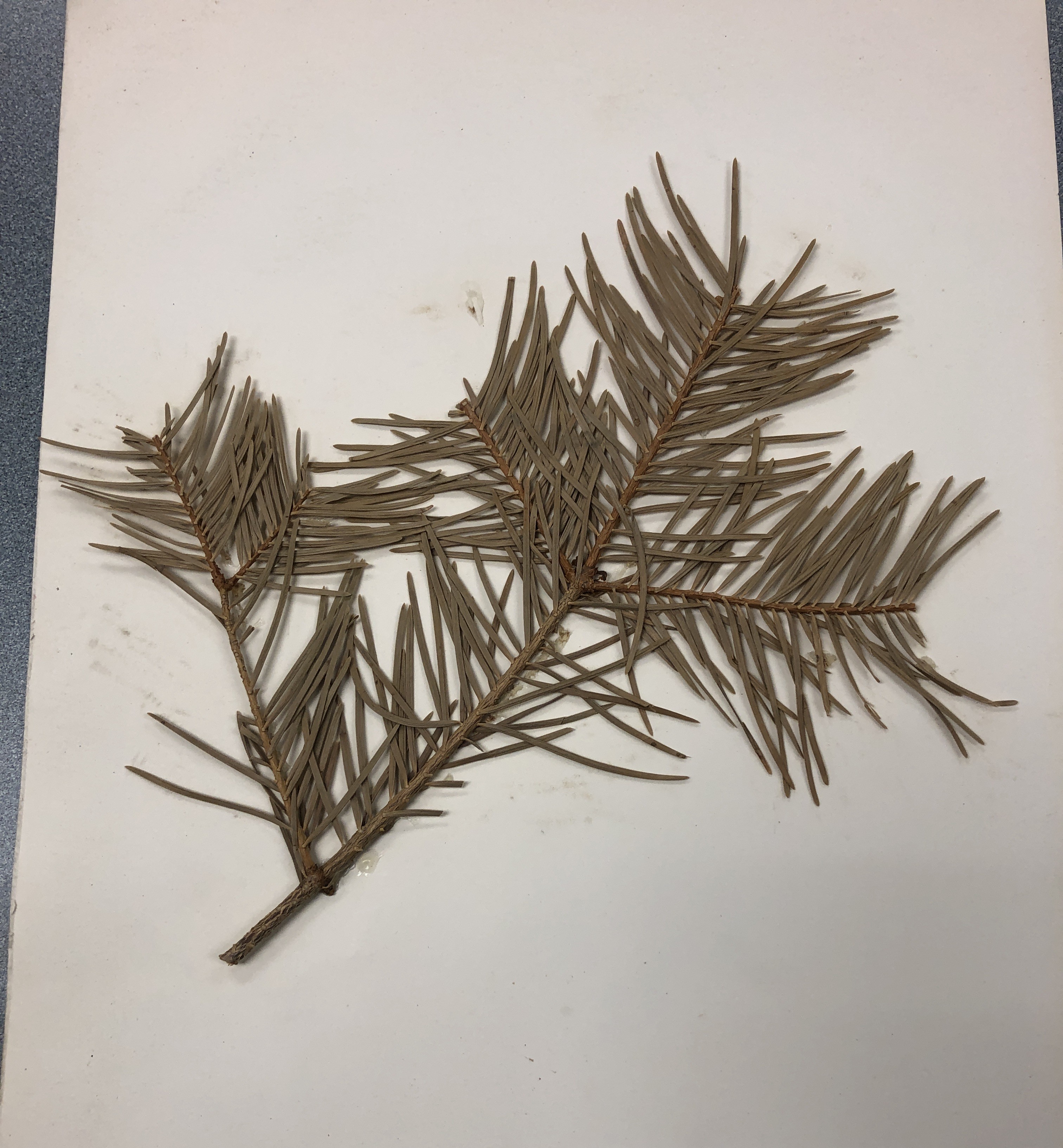
Abies lasiocarpa
subalpine fir
Pinaceae
native, perennial
-small, more compact tree
-one needle per fascicle that curves upwards
-tips of needles are very rounded
-pine cones are erect and purple
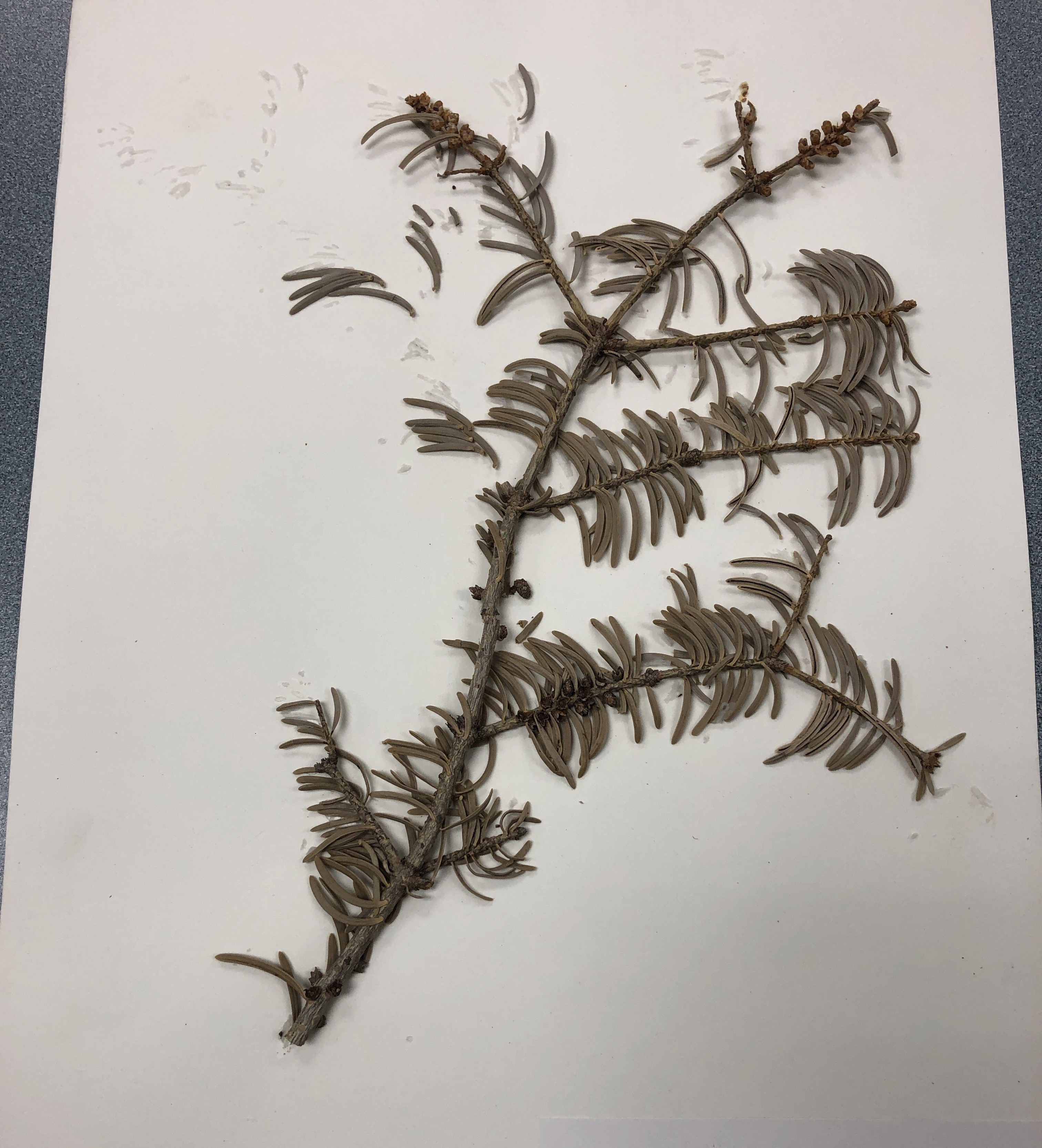
Picea engelmannii
Engelmann spruce
Pinaceae
native, perennial
-found in very high elevations
-one needles per fascicle
-needles are 4 sided (boxy) and leave prominent scars on the branch
-pine cones look papery and hang down below the branches
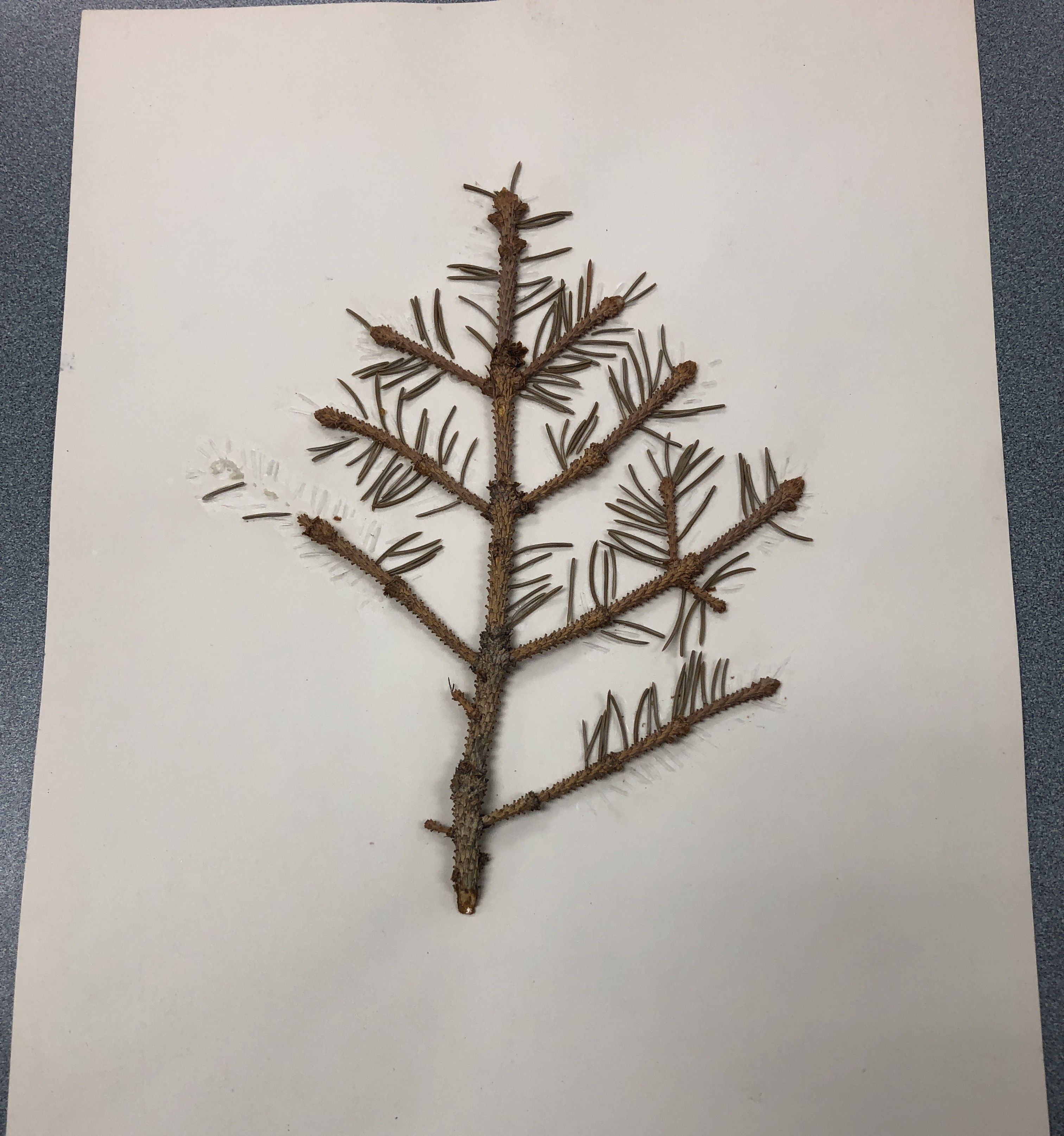
Pinus contorta
lodgepole pine
Pinaceae
native, perennial
-tall conifer with straight trunks
-2 needles per fascicle
-mid length needle size
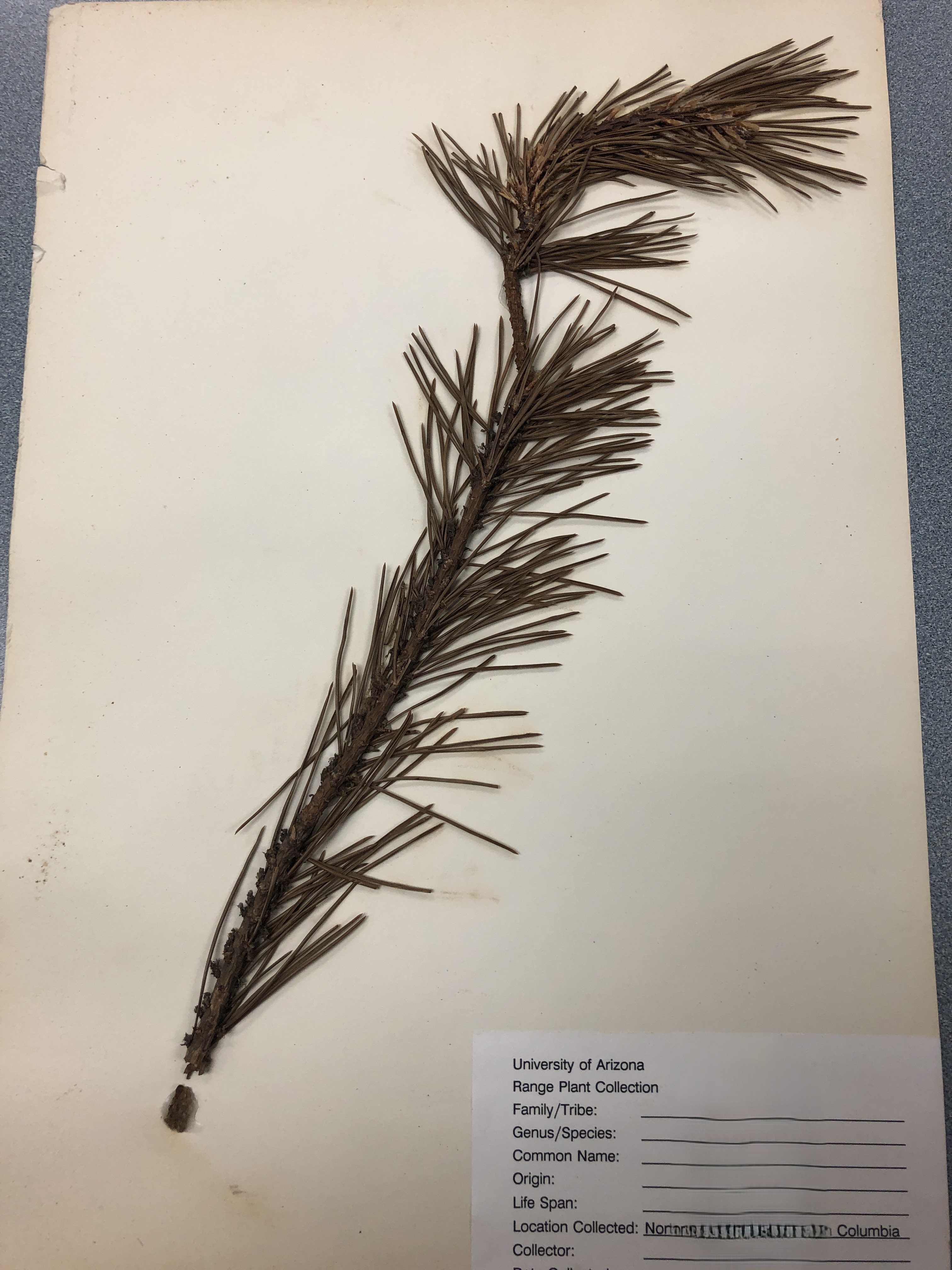
Pseudotsuga menziesii
Douglas fir
Pinaceae
native, perennial
-huge trees
-one needle per fascicle that is flatter and ends in a sharp point
-ends of branches have a golden bract

Deschampsia cespitosa
tufted hairgrass (salt and pepper grass)
Poaceae
native, perennial
-indicator species-
-different colored spikelet’s
-short awn on each floret
-panicle, wider inflorescences
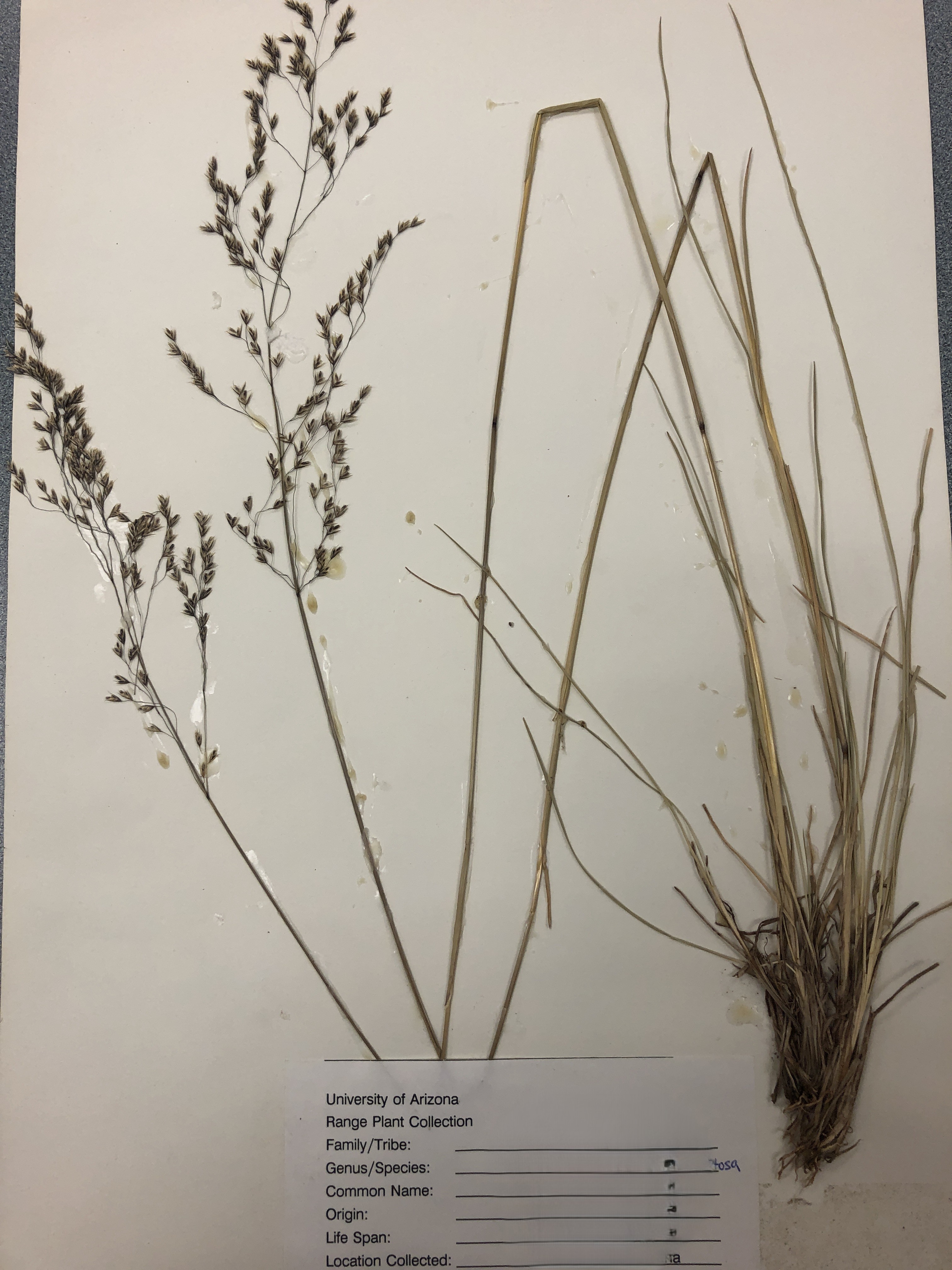
Phleum alpinum
alpine timothy
Poaceae
native, perennial
-indicator species-
-densely compacted purple inflorescence at top of branch
-2 awns per gloom
-longer leaves that are clustered at base of plant
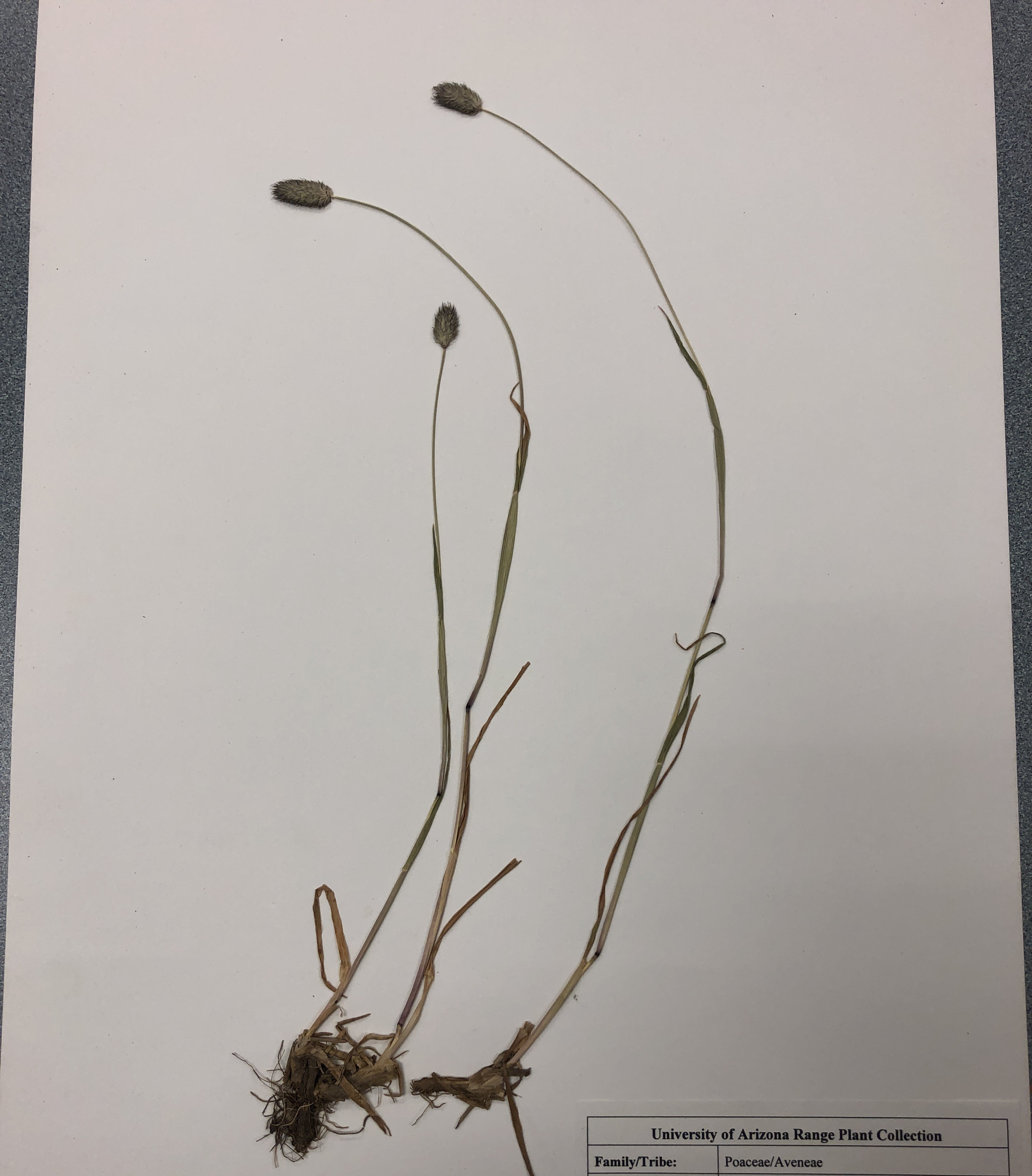
Bromus carinatus
mountain brome
Poaceae
native, perennial
-each floret has a short, stiff awn
-densely compacted panicle inflorescence
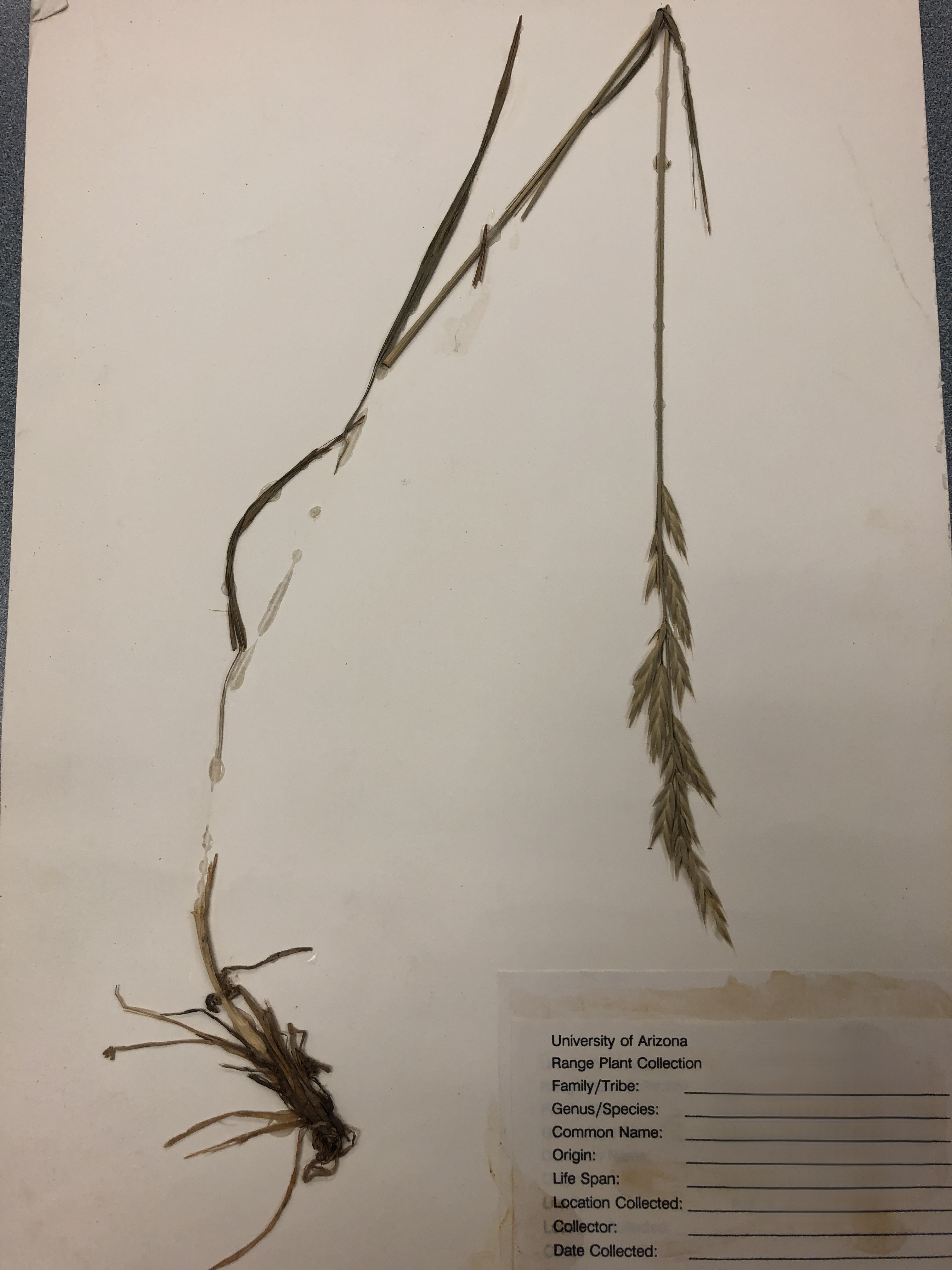
Dactylis glomerata
orchard grass
Poaceae
introduced, perennial
-large grass with longer branches located at the base of the plant
-each floret has a super short awn
-can be rhizomatous
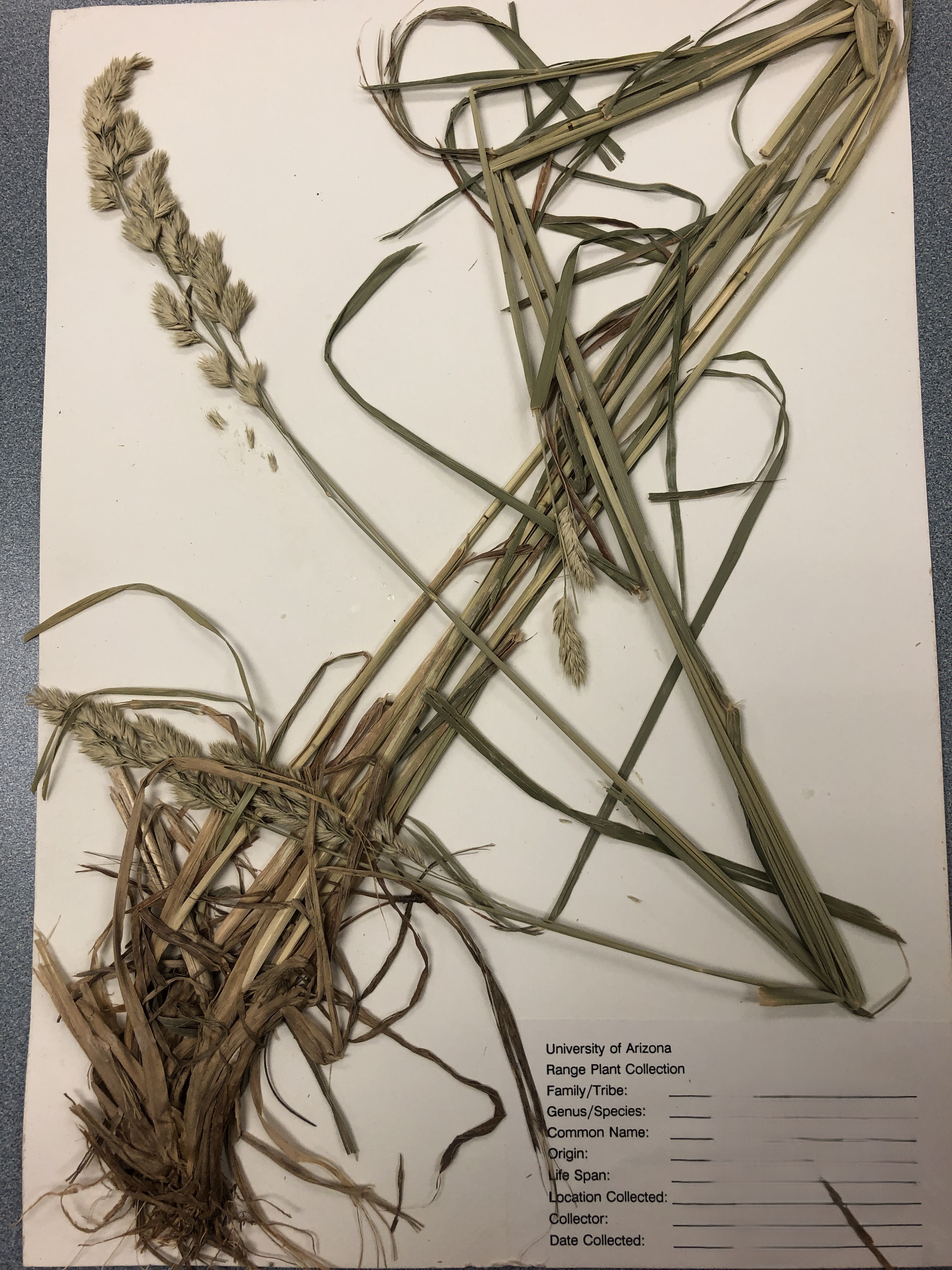
Festuca arizonica
Arizona fescue
Poaceae
native, perennial
-very short awns (shorter than Idahoensis)
-needle-like leaves that are clustered at base of the plant
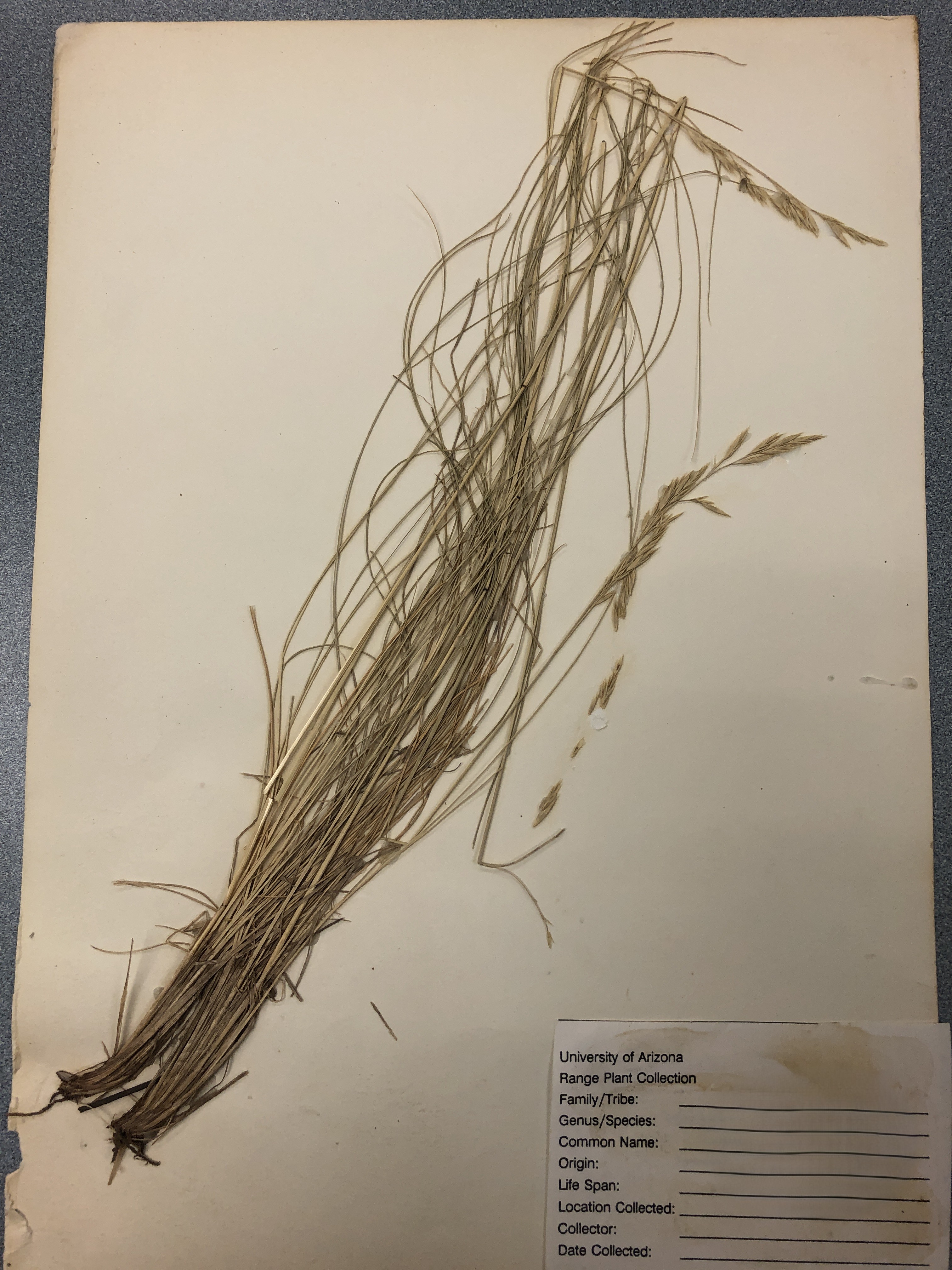
Poa pratensis
Kentucky bluegrass
Poaceae
introduced, perennial
-open panicle triangle-shaped inflorescence
-no awns present
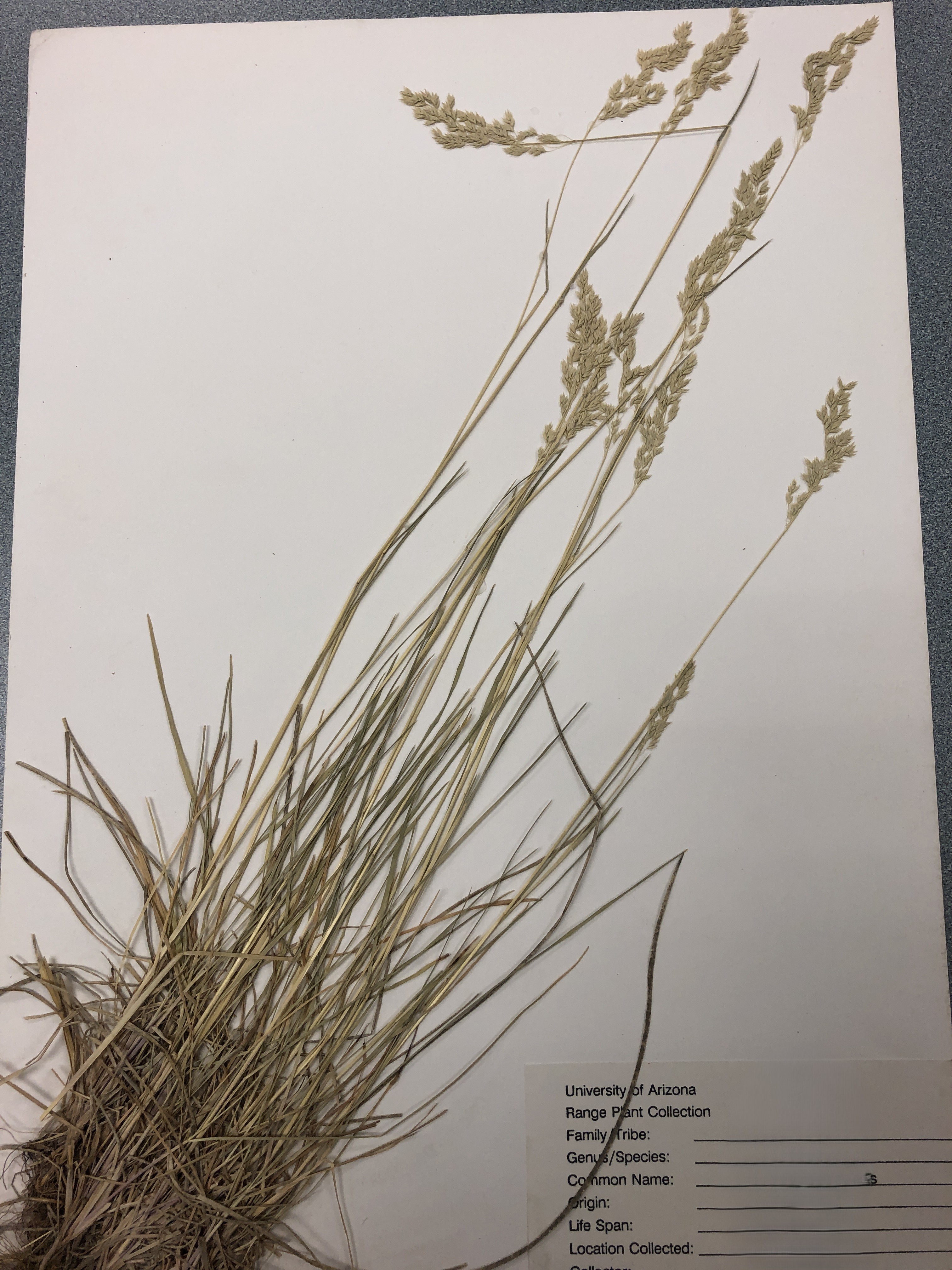
Delphinium bicolor
low larkspur
Ranunculaceae
native, perennial
-single, central stem with branches coming off it that have flowers on it
-occasionally blue veins on petals, upper petals are white, and lower petals are purple/blue
-leaves alternate and are deeply dissected, kind of look like a pom-pom
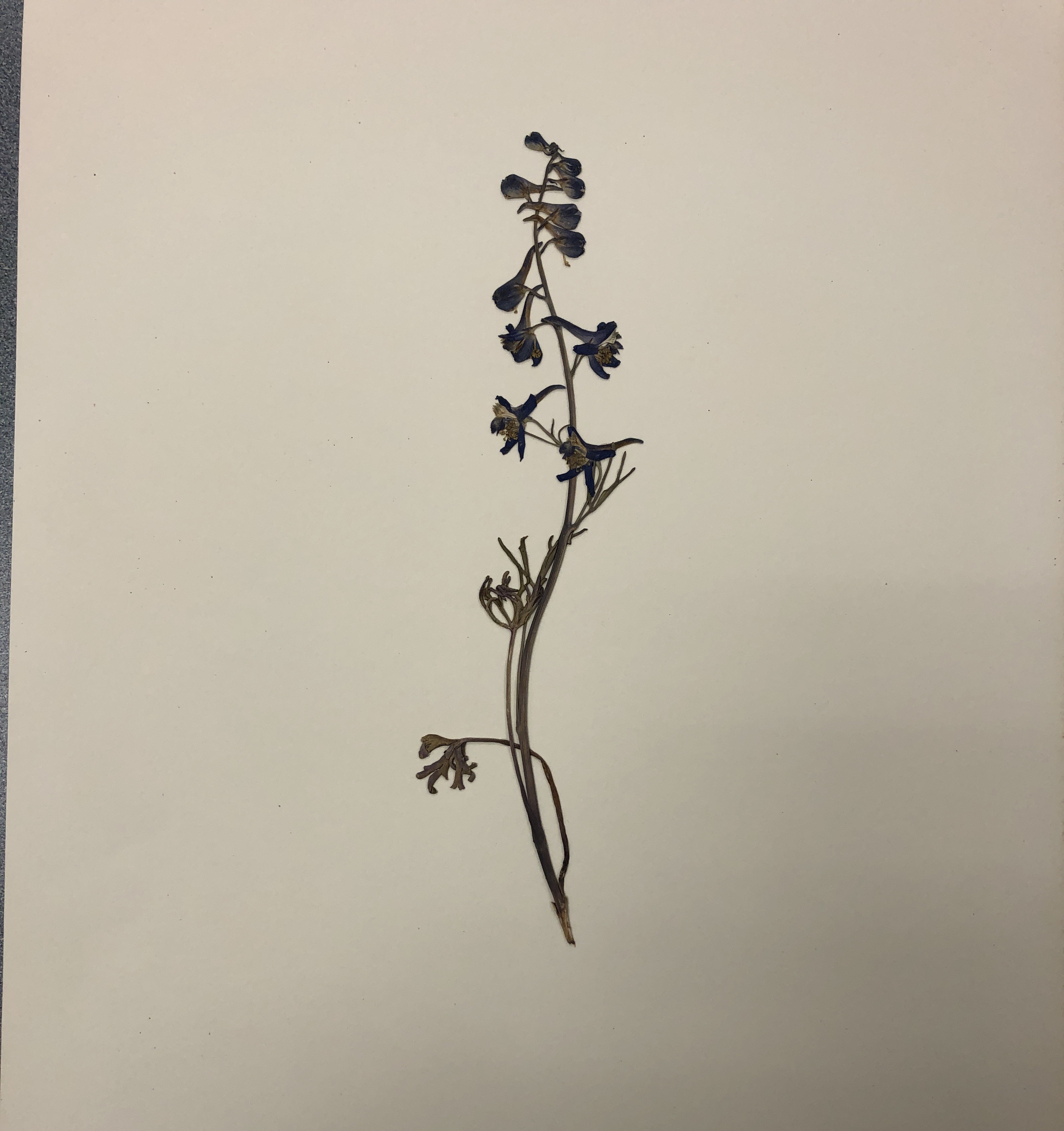
Populus tremuloides
quaking aspen
Salicaceae
native, perennial
-indicator species-
-longest living organism on earth (all trees are connected via roots)
-serrated margins on leaves
-catkin flowers
-leaves are more rounded and have a smaller “tail” compared to Fremont cottonwood
